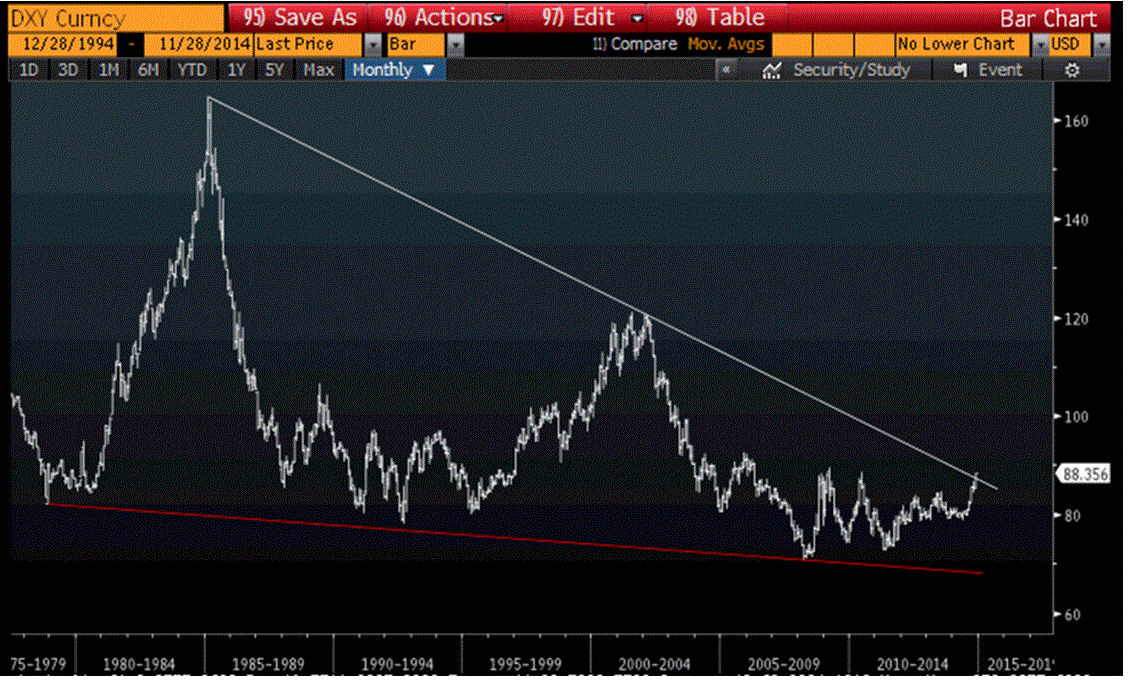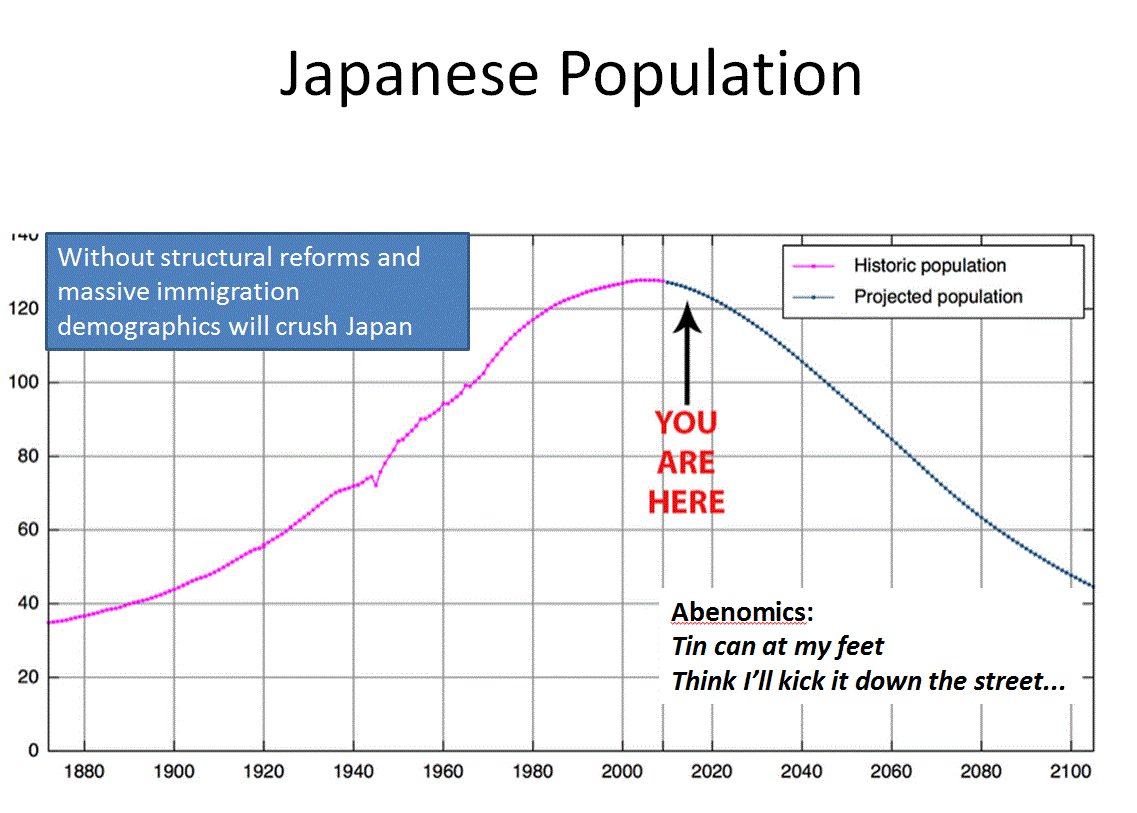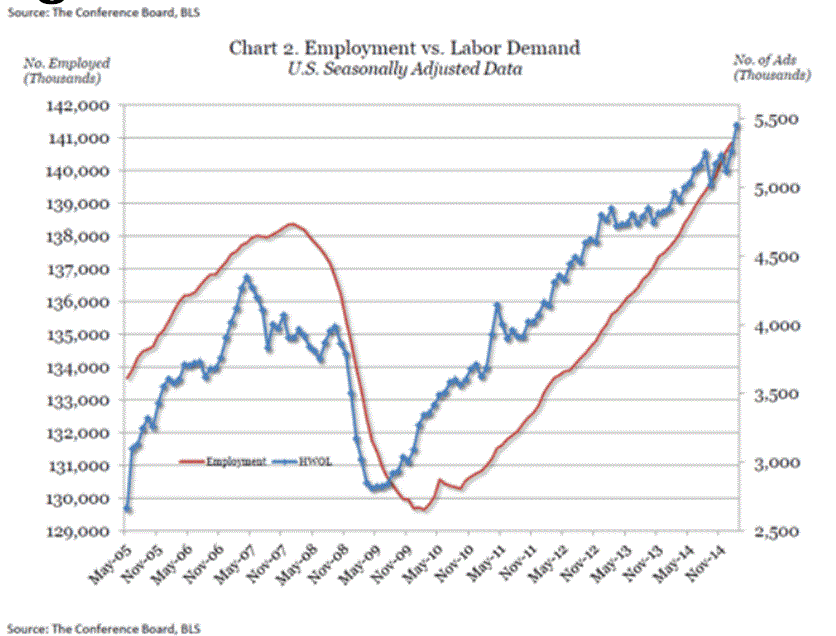3-9-2015 Comments
Yesterday I prepared a note that for unknown reasons did not show up in the forum. I must have hit a wrong button.
Watch lists are updated. With the market pullback there was a lot of merchandise to look at. This could be a good thing or a bad thing. Market corrections often begin with a pullback. I have remained in my long positions so far: FB, GRUB, LNKD, MNST, NCLH, NXPI and SCTY (short).
I have been analyzing market conditions for macro changes: conditions that were not significant in the decade looking backward but may be significant market effectors in the decade ahead. This exercise is performed to decide if the current market weakness could be different than all of the market weaknesses shown since 2009. My list is the following:
- China slow down
- European, Japanese, Chinese QE
- Dollar bull market
- Lower oil prices
- Higher job opening rate
- Rising interest rates?
- Militant Islam
- Russia expansion
I will leave out of the discussion the last two items, just to note that these could overwhelm all other factors if they are not contained.
Given what happened since 2008 where Natural Gas prices fell and never recovered I am considering that oil prices may find a new lower trading range. Fracking is what caused Natural Gas prices to precipitously drop in the USA. That market is different than Oil as Natural Gas is more of a local market in the US than an international market. The world does export Natural Gas but not at the same encompassing way that world oil is traded. But still fracking techniques can be used world wide and this is increasing oil supplies. China slowing is a major factor that effects all commodities. China growth was a major factor in market growths around the world, weakness from this sector implies very different market forces looking forward.
A macro US dollar bull market is perhaps conjecture. The USD has been rallying in a significant way I believe caused by current QE plans in Europe, Japan and China. Unless the FED decides to retaliate to cheapen the dollar this should continue. Dollar strength is a very new underlying macro condition with many market changing effects. When a dollar bull market occurs, emerging markets get hit, carry trades get unwound and they tend to usher in dis-inflationary forces as commodities and goods get repriced. The following chart says that a dollar bull is not certain by perhaps is just beginning.

As for Japan a glance at the figure below suggests that Japan has a problem that is probably larger than any democratic political system can handle. I don't believe that Japan can recover from its demographic problem and volatility or perhaps disaster could occur in that sector looking forward. Japan's only politically viable option is to continue to monetize the debt until the confidence in the Yen crashes. In a democratic society major structural reforms are infeasible until a change must occur because of an emergency situation. Resolution in Japan could be long in the future as political machines are very adept at kicking the can.

On a positive note look at the following chart from the Bureau of Labor Statistics Conference Board:

It shows (in blue) the advertisement placement rate for job openings in the US. A soaring ad placement rate suggests to me that employers are beginning to see a tightening job market in the US. The logical conclusion is that this could usher in a new wave of salary increases. Salary increases are a necessary condition for inflation to occur. Inflation going forward could effect interest rates. We have been living in a downward interest rate spiral for 35 years. This one little chart may be a leading indicator of a new interest rate regime ahead.
As far as old news goes the Greek situation probably does not end well. The recently reported Greek shopping list for ways to cope is the following:- a haircut for creditors;
- free electricity, food, shelter, and health care for all who need it;
- tax cuts for all but the rich;
- a rise in the minimum wage and pensions to €750 a month;
- a moratorium on private debt payments to banks above 20pc of disposable income;
- €5bn more in EU subsidies;
- and demands for 62pc debt forgiveness on the grounds that this is what Germany received in 1952
Okay does anyone believe this can happen? In July and August Greece is bound to pay €6.7 bn that they don't have. Approximately 80% of Greek debt is owned by other European central banks. As the Greek solution goes Italy, Portugal and France are in line. This is a very significant problem whereby the only viable political solutions is to try to find additional ways to kick the can down the road.
So one conclusion from this discussion is that there are significant new factors that are emerging that could (or probably will) effect the market conditions going forward. I note from my own trading that risk names have become much harder to trade. There are not enough risk names that followup on their breakouts.
So now I am going to try to really hit the "Submit New Thread" button instead of whatever I did yesterday...
Mike Scott
Cloverdale, CA




 Reply With Quote
Reply With Quote